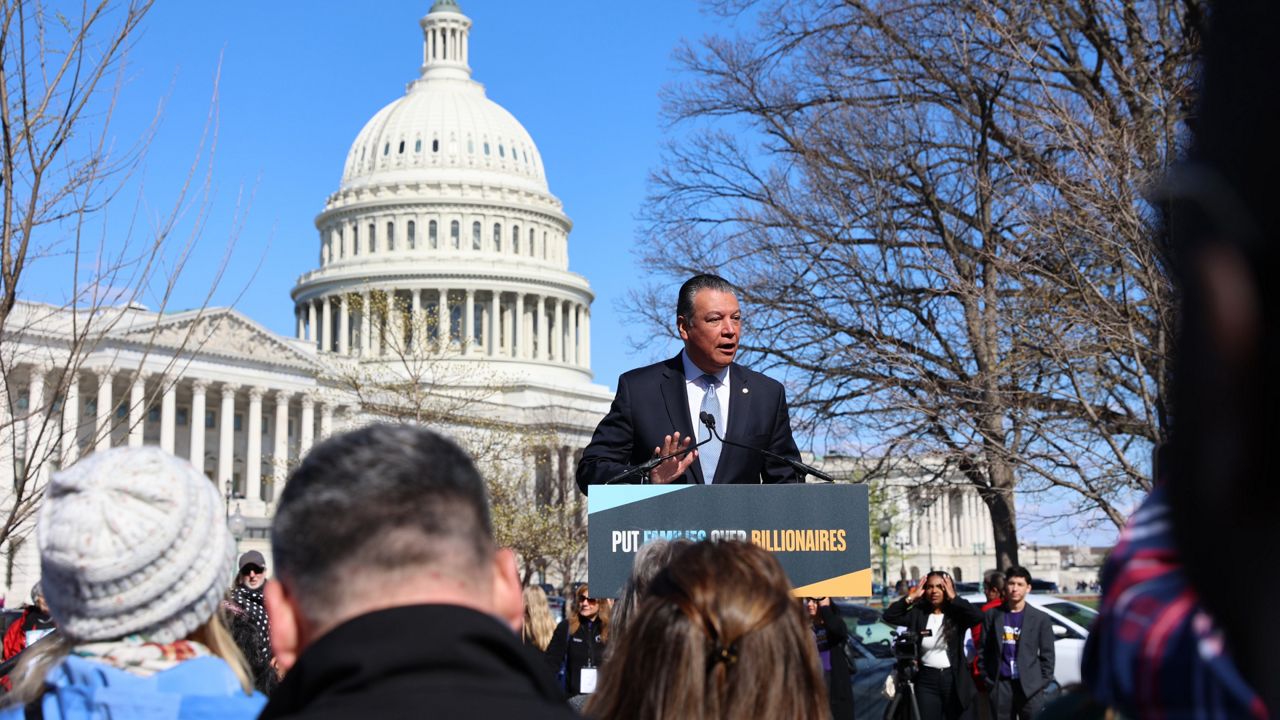For three days this week, Tulare, California, is the center of American agriculture as the host city for the World Ag Expo. This year, as Congress seeks to pass its twice-each-decade bill intended to support American agriculture and nutrition assistance programs, many of the folks visiting the International Agri-Center are hoping that House Speaker Kevin McCarthy will bring home the bacon.
“You know, the biggest optimists in the world are farmers. They believe that tomorrow is always going to be better than today, and here we are today in California with a great opportunity,” said McCarthy, who represents parts of the local San Joaquin Valley, during the expo’s opening remarks Tuesday. “We want to make sure food is abundant, affordable and that the farmer is there for the next generation.”
Farm bills have been updated and renewed by Congress about every five years since the 1930s and traditionally support staple American commodities: corn, soybeans, wheat, cotton, dairy, sugar and more. The farm bill’s iterations have evolved to include nutrition, government loans, rural development, horticulture, research and crop insurance, all with the goal of getting food from farm to table.
“It’s hard to think, you know, where’s my food come from? But when you really think about it, there’s multiple hands getting the food on the table for the general population,” said Daniel Posada, who is at the expo seeking to help the trucking company he works for break into the ag business.
The most recent iteration of the farm bill, passed in 2018, also covers the Supplemental Nutritional Assistance Program — the federal low-income food and nutrition program, which has benefited more than 40 million people annually for all but two of the last 12 years.
McCarthy was among a group of lawmakers that sat to participate in a listening session, in which farmers appealed for help on everything from dairy prices to chronic water shortages.
But the timing to renew the bill comes at a time in which House Republicans are less seeking to do horse-trading negotiations with Democrats, so much as flatly demanding spending cuts in return for agreeing to raise the national debt limit.
“We only spend 0.2% of the federal budget on production agriculture, and when you take into account the nutrition title, basically, the farm bill titles 2% of the entire federal budget on the industry that American families are most dependent on, each and every day,” said Rep. Glenn Thompson, R-Penn., who chairs the House Agriculture Committee. “Although we’ve got to show some adult behavior and we’ve got to reduce spending … that should not be done on the backs of the hardworking families who provide us the food, the fiber, the building materials and the energy resources that every family in this country is so dependent on.”
Rep. Jimmy Panetta, D-Calif., representing California’s Central Coast, said he believes the day’s listening session demonstrated bipartisanship that is absent in most depictions of political conversation.
“Yes, we’re gonna have our differences. Yes, we have different crops. Yes, we have different interests when it comes to our agriculture. But we work to find our similarities, and that’s when we can come together on the farm bill,” Panetta told Spectrum News. “It’s one of the most bipartisan products that we in the U.S. Congress can put together.”
However, immigration and border security — and specifically, the border between Mexico and the United States — remain the sticking points between Republicans and Democrats in ongoing negotiations.
McCarthy told reporters Tuesday that Republicans are not prepared to address complaints by some farmers about a migrant and foreign worker shortage.
Late last year, during the post-election “lame duck” session, Congress was unable to pass the Farm Workforce Modernization Act of 2021, sponsored by by Rep. Zoe Lofgren, D-Calif., who represents much of the “Salad Bowl” of America — communities that produce a majority of the nation’s lettuce crop. That bill would have granted “certified agricultural worker” status to foreign workers who performed at least 1,035 hours of agricultural labor between March 2019 and March 2021. Those workers would later be able to apply for lawful permanent resident status.
“The first thing that has to be done is secure the border before we have any immigration reform,” McCarthy told reporters. “Once we’re able to secure it, I think we’ll move forward with immigration.”
To that point, McCarthy said he will visit the nation’s southern border in Arizona on Thursday.









